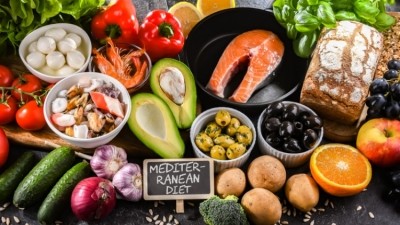Science Shorts: Kikkoman flavour pairing system, AI in chocolates, world's first chocolate with protein from thin air and more feature in our round-up

Cracking the code: Kikkoman develops data-backed flavour pairing system to localise products for Indian market
Japanese brand Kikkoman is using research and data to identify Indian ingredients that are best paired with its soy sauce, in an effort to accelerate product development and further penetrate the local market.
The firm has devised a system called KIP (Kikkoman Ingredients x Seasoning Pairing), which “scientifically evaluates” the taste compatibility of its signature soy sauce with Indian ingredients and seasonings.
AI in chocolates: ‘Imported’ flavours gaining traction in APAC on the back of growing demand for indulgence and adventure
‘Imported’ flavours that are traditionally more western in origin have been rapidly gaining popularity in the APAC chocolate sector because consumers associate these with indulgence and adventure.
Although flavour localisation has become an increasingly important innovation trend in many food and beverage categories, artificial intelligence (AI) technology has recognised that in cocoa and chocolates flavours from far-away markets are gaining more traction.
According to ofi, this has been greatly influenced by consumers looking for novelty and adventure after being cooped up throughout the COVID-19 pandemic.
“Traditionally American and Western flavours are definitely taking off in the Asia Pacific region - We put this down to increasing globalisation and a desire for adventure and new taste experiences post-pandemic,” ofi Asia Confectionery Category Lead Evan Kee told FoodNavigator-Asia.
‘Protein out of thin air’: World-first chocolate promises high-iron, high-fibre option for vegan and health-conscious consumers
Finnish food company Fazer has launched the world’s first chocolate made using ‘protein out of thin air’ in Singapore, citing its high iron and fibre content as attractive for vegan and health-conscious consumers.
The ‘protein out of thin air’ in question is Solein, developed by foodtech company Solar Foods, which Fazer is a major investor and stakeholder in. Solein obtained regulatory approval as a novel food product from the Singapore Food Agency in 2022.
Fazer is one of Finland’s most well-known chocolate brands, and is best known for its Geisha and KarlFazer brands in the Asia Pacific region. The firm has dubbed this novel chocolate ‘Taste the Future, highlighting its status as the first ever FMCG product to utilise Solein.
“We felt that with such a novel ingredient it was important to focus on a product format that consumers are familiar with, and since Fazer is best known for our chocolate it made sense to formulate in this format first,” Fazer Corporate Ventures Senior Manager Siiri Pihlainen told FoodNavigator-Asia at its first tasting event in Singapore.
Must all food innovation be high-tech? More ‘immediate’ changes needed beyond alternative proteins – expert panel
The food and beverage sector will need to focus on making more ‘immediate’ changes beyond just creating a novel protein supply in order to address sustainability and overall supply chain challenges, according to industry experts.
This was the conclusion of an expert panel which convened at the recent Asia-Pacific Agri-Food Innovation Summit in Singapore, comprising of Aleph Farms Co-Founder and CEO Didier Toubia, Cargill Food Solutions for South-East Asia Francesca Kleemans, GROW CEO Joshua Soo and JAPFA CEO Tan Yong Nang.
In particular, Soo noted that in terms of food and agriculture innovation there are many untapped markets in South East Asia, but there exists a tendency to focus on solely high-tech solutions such as alternative proteins.
“There is a very real risk here to think that innovation always needs to be about technology, particularly high-technology solutions only,” he told the floor.
Ulcer-healing dairy supplement leverages nanotech to squeeze the most of its ‘golden’ ingredient
South Korean brand Castoma says nanotechnology has enabled the company to shrink down the molecules of curcumin and boost its effectiveness against common stomach problems.
Curcumin, a major component of the turmeric plant and known for its yellow pigmentation, has been the subject of numerous studies looking into its medical properties, particularly its gastroprotective and antiulcerogenic effects. Curcumin also has anti-bacterial properties and can inhibit the formation of the bacteria responsible for ulcer formation.











